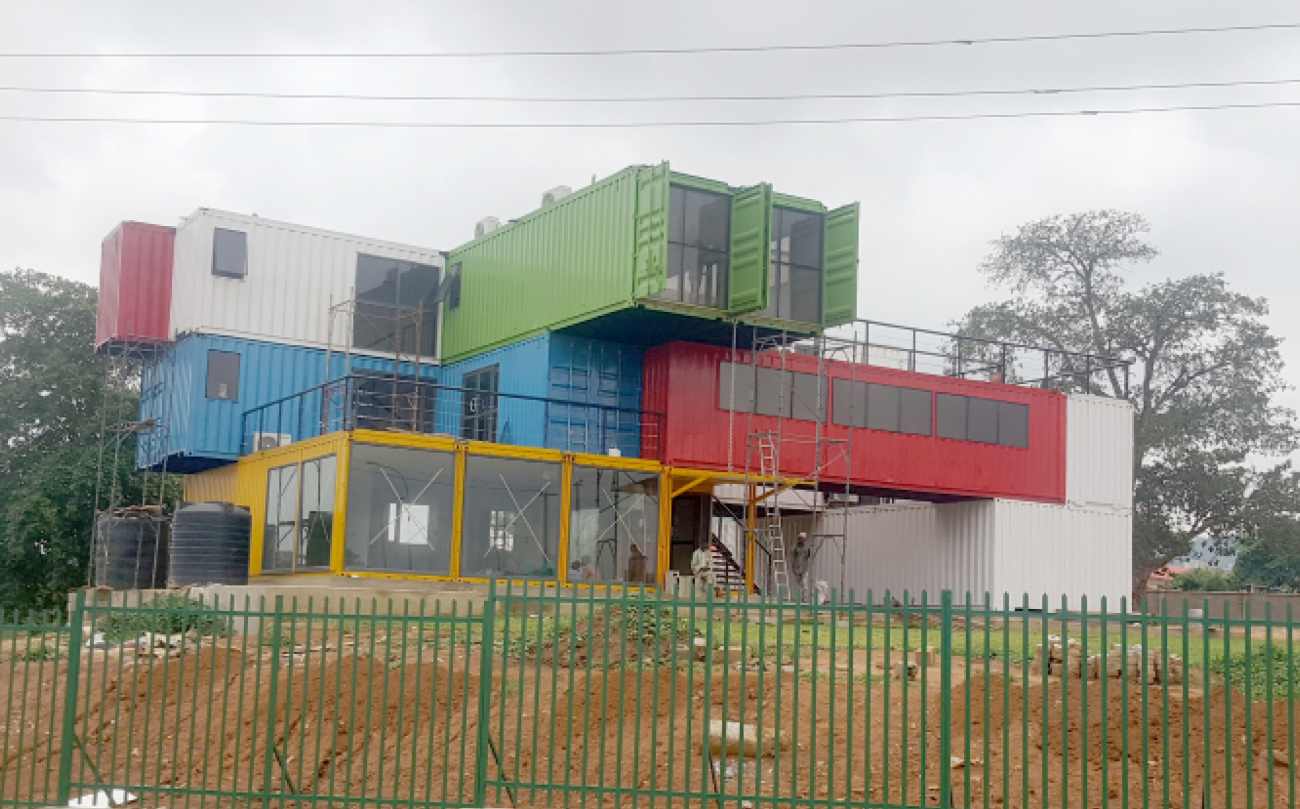Inside Abuja’s newest ‘container’ office structure
The sight of steel containers in major cities across Nigeria housing shops, offices, workshops and the like is not something new, however, seeing a complete building fabricated from these containers is what is novel to the building industry in Nigeria. Driving on the Kubwa Expressway, opposite Gwarimpa Housing Estate, in the Federal Capital territory (FCT), […]

The sight of steel containers in major cities across Nigeria housing shops, offices, workshops and the like is not something new, however, seeing a complete building fabricated from these containers is what is novel to the building industry in Nigeria.
Driving on the Kubwa Expressway, opposite Gwarimpa Housing Estate, in the Federal Capital territory (FCT), Abuja, one will notice 40-foot of such containers. A few months ago, not too many passers-by could tell what the heap of containers overlooking the expressway were actually meant for. Many people felt the shipping containers were a sign of some form of gigantic construction work about to begin.
However, as time went by, it became clear that Abuja would soon be bedecked with a rare kind of architecture.
Daily Trust visited the site and discovered that what is being constructed is a full office complex built from the containers; which is going to add to the growing number of such containers in Abuja being used mostly as shops, offices and in a few cases, residences.
The construction on the Kubwa Expressway can arguably be the first full building to be constructed from containers. The office block consists of a dozen shipping containers that have been fitted together with extensive steel reinforcement.
The edifice features large glass windows, woodwork, rooftop terrace and a stairway. While it may not look like most normal concrete buildings from the outside, the white walls, tiled floors, panes and industrial finishes inside give it a modern touch.
The second storey is accessed through a staircase, while access in between offices is made possible through door openings.
The engineer overseeing the project, Marco Di Canto, said the building would be the main Abuja office of A.G Ferrero Limited civil and building contractors.
Di Canto said one of the reasons the company was building an office with containers was to experiment something different and innovative.
He said, “Secondly, what pushed us is the speed that you can achieve with this type of construction and the fact that they are movable. Even though it is three floors, in case of any future development, it can easily be transferred.
“This is the first time we are doing a full building; all done with containers. We had done warehouses and small offices, but this is the first time we are doing a complete building that will serve as office; with containers.”
Di Canto further said the project kicked off once approval was gotten from the regulators.
Daily Trust reports that container homes have become an exciting proposition at a time the cost of concrete-based building materials have continued to increase.
Building experts say containers are the strongest structures available – stronger than wood, concrete and even steel and that they are resistant to natural disasters and the general belief is that container homes are cheaper to build than conventional housing.
Di Canto, therefore, said, “I would say that the price is within reasonable budget. It is not extremely expensive, but while you may think it is cheap, actually it is not that cheap at the same time; but it is not outrageous.
“The minus is that at the end of the day you have to stick on the shape of containers. The design may be a bit complicated. You are not free to take any dimension like you do with blocks, but at the end of the day, if someone likes the style; that is even the beauty of it.”
An engineer with a leading Nigeria-based project developer, said construction cost using containers depended on final specification and finishing; which he said could be between N2m and N8.5m.
